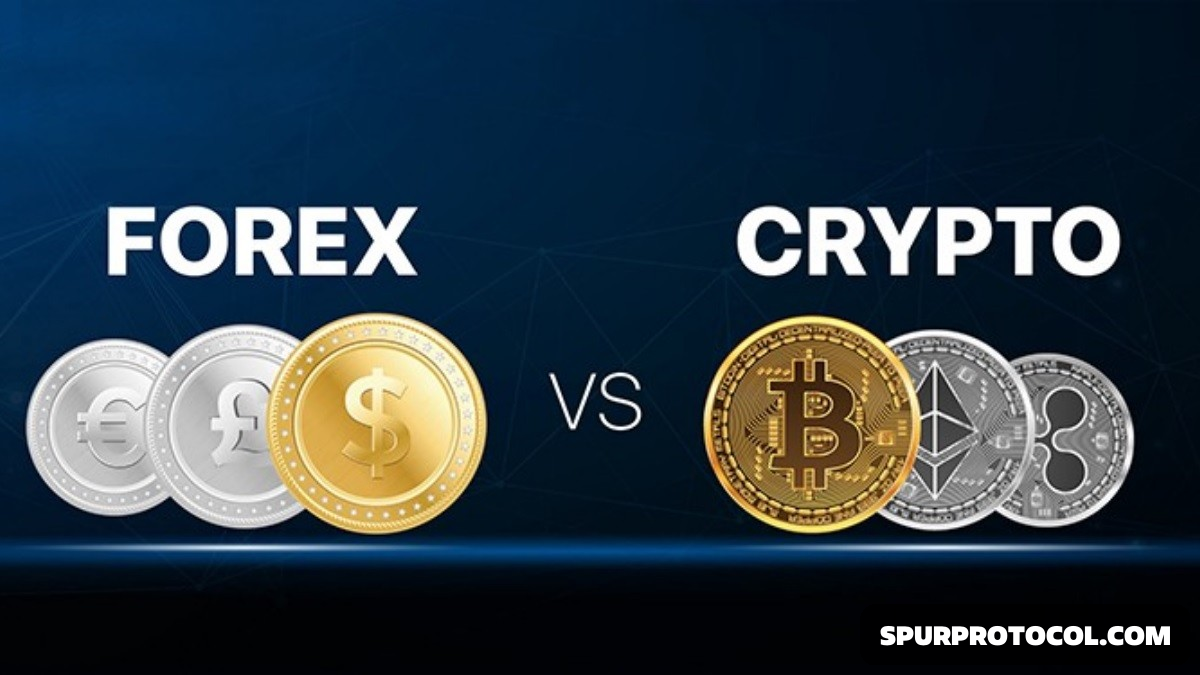The Similarities And Differences Between Crypto And Forex Trading
Although cryptocurrency trading and investments have made their way around the block once or twice, crypto’s decade-long industry is still relatively new compared to mature trading markets like the Foreign Exchange Market, also known as “forex”.
Go Back

🕒 7:34 AM
📅 May 29, 2025
✍️ By Usmaniron25
Similarities Between Crypto and Forex Trading
Though it might not be immediately apparent, crypto and forex markets hold several similarities:
Supply/Demand Factors: Both the trading markets function on the supply and demand economics. The price of any currency, in crypto and forex, is based on the supply and demand factors.
Digital Platforms: The trades are conducted electronically on the internet. Any individual can trade multiple currencies on various digital platforms for the crypto or forex market.
Flexibility: Traders have the flexibility of conducting trades from anywhere in the world. Additionally, these trades take a short amount of time in both cryptocurrency and forex markets.
Understanding Markets: Both markets demand a certain degree of understanding and awareness of technical factors in order to gain profitable returns.
Bots:
Forex and crypto trading can be conducted by using online auto bots (robots) that enable automated trading of forex or cryptocurrency trades.
Differences Between Crypto and Forex Trading
From functionalities to market size, there are considerable differences that exist between the two markets:
OTC vs Exchanges: One of the key differences between the two markets is the nature of platforms on which trades are conducted. Forex trades are usually placed through OTC platforms, while cryptocurrency trades are usually carried out on exchanges offering trading services.
Timings: The cryptocurrency market is open round the clock, 365 days a year. Any individual can trade directly at any point in time. Forex markets are open only 5 days/week.
Intermediaries: Forex trading usually involves a middle man to place an individual’s trades. Subsequently, the intermediary cost and fees for forex trades are relatively higher in comparison to cryptocurrency trades. Although cryptocurrency trades involve exchanges, the transaction fee is low.
Volatility: In comparison to the forex market, cryptocurrency markets have higher price volatility. With daily price swings of crypto tokens, a canny trader can leverage the factor of volatility to generate greater profits.
Liquidity: Forex markets possess higher liquidity than cryptocurrency markets. This feature is due to the substantially higher daily trading volume in the forex market in comparison to the cryptocurrency market. Because of this liquidity, larger trades conducted in forex do not have any major impact on the price.
Regulation: Because the crypto industry is relatively new, cryptocurrency trading is not completely regulated across the globe. Meanwhile, forex market trades fall under a legal regulated structure.
External Factors: Prices in forex markets are impacted by external factors including economic events, political events, GDP growth, monetary policies, global news, major announcements, etc
